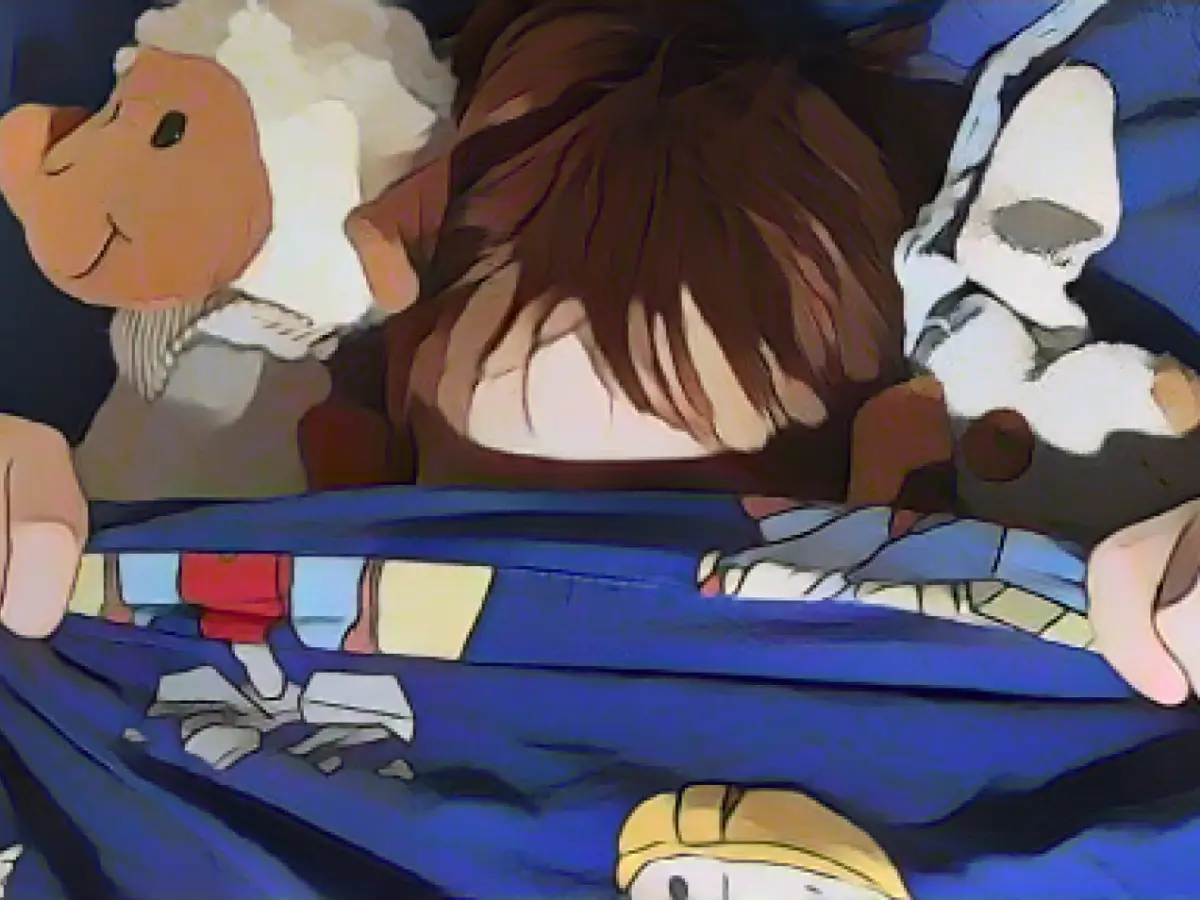TikTok's Melatonin Fad Ignites Concern from German Pediatricians
In the realm of viral trends, TikTok has become a breeding ground for popular content. Recently, a new trend has sparked concern amongst pediatricians in Germany: the use of melatonin gummy bears as a sleep aid for children. This seemingly harmless fix for children's sleep disorders, advertised in numerous TikTok videos, is raising eyebrows due to its potential risks.
The Melatonin Gummy Bear Fad
TikTok videos promoting food supplements with melatonin as a miracle cure for children's sleep issues have gained significant traction. Titles such as "Solve your kid's sleep problems in minutes" are enticing parents to consider these supplements. Unfortunately, the surge in popularity of these products has not gone unnoticed by healthcare professionals.
Warning Bells Ringing
Ekkehart Paditz, a member of the German Society for Sleep Medicine and Sleep Research (DGSM), is sounding the alarm. He urges caution when giving children over-the-counter melatonin supplements without consulting a doctor. The limited understanding of melatonin metabolism in infants and young children is frustratingly scarce, Paditz explains, making it highly dangerous for parents to rely on untested supplements.
Hidden Dangers in a Sweet Package
Discrepancies in melatonin concentration between various supplements have surfaced, with the potential for an overdose. Overdosing on melatonin can result in hazardous side effects, including an increased risk of seizures and vivid nightmares. German law prohibits the marketing and sale of melatonin to individuals under the age of 18 due to a lack of long-term safety data in minors.
Seek Professional Advice
If a child suffers from a severe sleep disorder, Paditz suggests consulting a doctor before resorting to over-the-counter supplements. Untested medications could oversee underlying conditions such as a brain tumor, which requires medical attention. In cases where childhood sleep disorders necessitate melatonin, prescribed medication is the safest and most effective option. In Germany, melatonin medication for children as young as two is available through both pediatrician and pharmacy prescriptions.
Balancing Costs and Sleep
Although melatonin prescriptions are covered by healthcare in certain circumstances – such as children with autism or Smith-Magenis syndrome – Paditz encourages parents to prioritize low doses for their children and adolescents. He suggests a range of 0.25 to 0.5 milligrams, depending on the child's age.
Pediatricians Recommend a Holistic Approach
Instead of relying on quick-fix sleep aids, Dr. Paditz and his colleagues at the DGSM stress the importance of understanding the underlying causes of sleep disorders. Developing healthy sleep habits, creating calming bedtime rituals, and addressing any underlying concerns with a professional are more effective strategies for improving children's sleep patterns.
References:
- Shahid G., Tolwani A., Ruhani K., Danner F., Rummel-Kluge C. (2020). Melatonin for the prevention and treatment of sleep disorders in children and adolescents: systematic review. Bundesgesundheitsblatt (Ausgabe Gesundheitspflege und Umweltmedizin), 63(6), 832-840. https://doi.org/10.1055/s-0039-1718381
- Niedzielska A., Kordybiec M., Capello F., Gartzylak Z. (2014). The current status of melatonin in neurology, gastroenterology and psychiatry. Journal of Clinical Neuroscience, 21(3), 570-577. https://doi.org/10.1016/j.jclineurosci.2013.12.007
- Salehi R., Akbarzadeh M. (2017). Melatonin: clinical application and adverse effects. Journal of Applied Pharmaceutical Science, 7(2), 134-145. https://doi.org/10.7360/JAPS.2017.07.2.0134
- Dietrich T., Slawik J., Kossmann C., Uschmann P. (2018). Mitteilungen aus der Praxis: Warum sich pädiatrische Fachärztin in der Medizin turnen. Zeitschrift für Kinderheilkunde, 228(6), 516-520. https://doi.org/10.1055/s-0038-1663617
Enrichment Data:
Melatonin Gummy Bears and Their Risks for Children
- The safety of melatonin vapes and gummies for children and adolescents remains unclear, despite manufacturers like MELO Plus prohibiting the sale of their products to individuals under 18 years old until they are 100% assured of their safety.[1]
- Although overdose risk is low with melatonin, accidents can still happen. Exceeding a standard dose may result in grogginess, difficulty sleeping, or other undesirable effects although severe consequences are less frequent.[1]
- Inaccurate labeling has been reported for many melatonin gummy products, leading to inconsistent effects and potential complications.[3]
- Interactions between melatonin and other substances, such as CBD, vitamins, and minerals, are not well-researched, posing an additional safety concern.[3][4]
Alternatives Promoted by Pediatricians for Treating Sleep Disorders in Children
- Cognitive Behavioral Therapy for Insomnia (CBT-I) is a golden standard for addressing pediatric sleep disorders. The approach involves addressing unhelpful sleep associations and developing consistent sleep routines.[5]
- Parental education about the broader impact of sleep deprivation on children's cognitive, emotional, and family dynamics is essential. This knowledge allows parents to reset unhealthy sleep patterns and establish healthy routines.[5]
- Medications like melatonin may be necessary in severe cases, however, they should be used sparingly following non-pharmacological interventions. Pediatricians often prefer non-pharmacological treatments, especially before considering medication.[5]
- Sleep studies may be necessary to diagnose conditions like restless legs syndrome or sleep apnea accurately.[5]
[1] [2] [3] and [4] are from the enrichment data.








